
Beeston is a town in the Borough of Broxtowe, Nottinghamshire, England, 3.4 miles (5.5 km) south-west of Nottingham city centre. To its north-east is the University of Nottingham's main campus, University Park. The pharmaceutical and retail chemist group Boots has its headquarters 0.6 miles (1 km) east of the centre of Beeston, on the border with Broxtowe and the City of Nottingham. To the south lie the River Trent and the village of Attenborough, with extensive wetlands.

Nottingham Express Transit (NET) is a 32-kilometre-long (20 mi) tram system in Nottingham, England. The system opened to the public on 9 March 2004 and a second phase, that more than doubled the size of the total system, opened on 25 August 2015, having been initially planned to open two years earlier.

West Bridgford is a town and the administrative centre of the Borough of Rushcliffe in the county of Nottinghamshire, England. It lies immediately south of Nottingham, east of Wilford, north of Ruddington and west of Radcliffe-on-Trent. It is southwest of Colwick and southeast of Beeston which are on the opposite bank of the River Trent. The town is part of the Nottingham Urban Area and had a population of 48,225 in a 2018-estimate.
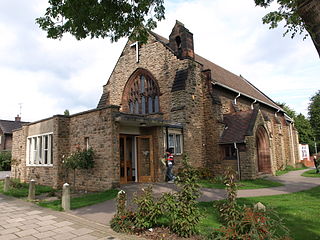
Chilwell is a village and residential suburb of Nottingham, in the borough of Broxtowe of Nottinghamshire, west of Nottingham city. Until 1974 it was part of Beeston and Stapleford Urban District, having been in Stapleford Rural District until 1935.
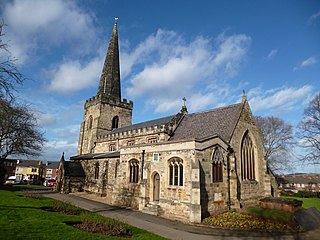
Stapleford is a town and civil parish in the Borough of Broxtowe in Nottinghamshire, England, 5.6 miles (9.0 km) west of Nottingham. The population at the 2011 census was 15,241.
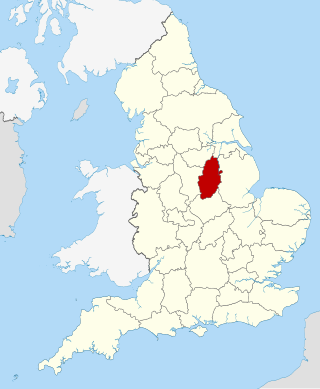
Nottinghamshire Police is the territorial police force responsible for policing the shire county of Nottinghamshire and the unitary authority of Nottingham in the East Midlands area of England. The area has a population of just over 1 million.

Edinburgh is a major transport hub in east central Scotland and is at the centre of a multi-modal transport network with road, rail and air communications connecting the city with the rest of Scotland and internationally.

Aspley is a council estate and a ward of the city of Nottingham, Nottinghamshire, England. It is located within the boundaries of Nottingham City Council. The ward is located 3 miles (4.8 km) west of Nottingham City Centre and is located only 1.6 miles west of Junction 26 of the M1. It lies south of Bulwell, west of Basford and is north of Bilborough. The principal road in the ward is the A610. At the 2001 Census the ward had a population of 15,689, increasing to 17,622 at the 2011 census.
The Hong Kong Cycling Alliance (HKCAll) is a small non-profit organisation that works to make Hong Kong a more bicycle-friendly city. Through coordination of the efforts of Hong Kong's many cyclists and cycling groups, it campaigns to educate decision-makers about cycling as active transportation, and to encourage and enable all types of cycling, including utility/commuting, leisure riding, off-road, racing and touring.
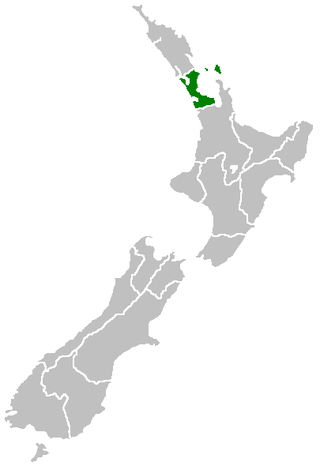
Bike Auckland, formerly Cycle Action Auckland (CAA) is a pro-cycling advocacy group in Auckland, New Zealand. The predominantly volunteer group aims to improve infrastructure and conditions, as well as perceptions of cycling to encourage more "everyday people" to use bicycles, including for commuting and recreation.

Cycling in Sydney, New South Wales, Australia takes place for recreation, commuting and as a sport. Sydney has a hilly topography and so may require a slightly higher level of fitness from cyclists than flatter cities such as Melbourne and Canberra. Sydney depends heavily on motor vehicles where traffic and public transport operate at capacity. This means that cyclist are often competing with motorists for limited space on busier roads, and for limited government resources for expenditure on road infrastructure. In its favour, Sydney has a generally mild climate and there are active cycling groups.
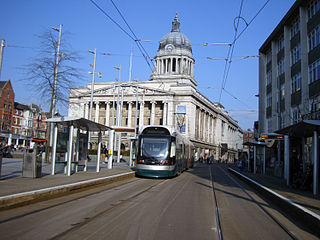
Nottingham is the seventh largest conurbation in the United Kingdom. Despite this, the city had a poor transport system in the 1980s. The government has in the early twenty-first century invested heavily in the transport network of Nottingham, which has led to the re-opening of the Robin Hood Line and the construction of a light rail network, Nottingham Express Transit.

Cycling in New Zealand, while relatively popular as a sport, is a very marginal commuting mode, with the share hovering around 1–3% in most major cities. This is due to a number of factors, principally safety fears.

Cycling in Cardiff, capital of Wales, is facilitated by its easy gradients and large parks. In the mid-2000s between 2.7% and 4.3% of people commuted to work by cycling in the city. In 2017 12.4% of workers cycled to work at least 5 days a week. However, cyclists in the city are deterred from cycling by poor facilities and aggressive traffic, according to research by Cardiff University.

Spokes Canterbury is the main cycling advocacy group in Canterbury, New Zealand. It was established in November 1998, as a successor to the former Canterbury Cyclists' Association. Cycling Action Network is the parent organisation for Spokes Canterbury. It has about 900 members, including "everyday" cyclists, road cyclists and mountain bikers.

Cycling in Auckland is a mode of transport which has historically had high levels of modal share in Auckland, New Zealand, like in most cities in New Zealand. However, the dominance of the car in the city, the negative attitudes of car drivers and general changes in transport patterns had made it a very marginal transport mode in the early 21st century, with remaining cyclists often riding for leisure and sports purposes.
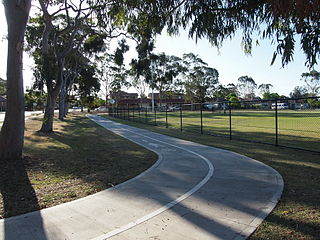
Bike paths in Sydney, New South Wales, Australia, vary widely, with the majority either shared cycle and pedestrian paths or on road paths, and a small number of separated cycleways. In 2009 the Sydney Morning Herald reported that "Sydney's cycleways are not so much an organised network as a fragmented collection of winding paths and half-finished ideas. Most were built or designed when cycling was viewed as a pleasant pastime rather than a practical form of travel and are now poorly suited to commuting."
Pedal on Parliament is a grassroots campaign group that wants Scotland to be a place where active travel is safe and enjoyable. Set up in 2012, it seeks improvements to make conditions on Scotland's roads suitable for those aged from 8 to 80. Events were initially held annually, which for the first seven years centred around people cycling through Edinburgh to the Parliament. A simultaneous ride in Aberdeen was introduced in 2015. In 2017 rides where also held in Glasgow and Inverness as well as in Edinburgh and Aberdeen. In 2018, events took place over two days in Edinburgh, Inverness and Aberdeen. In 2019, there was a switch to local events being organised, with 20 events planned between the Friday and Sunday. In 2020 and 2021 because of the Coronavirus epidemic group rides were not held, with people instead encouraged to undertake actions as individuals to mark the date of Pedal on Parliament. In 2022 a family-friendly mass ride took place again. An event is organised for Saturday 23 April 2023.

Cycling for transport and leisure enjoys popularity in Greater Manchester and the city also plays a major role in British cycle racing. The University of Manchester is home to the Manchester Cycling Lab.

















